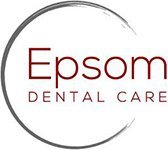What is TMJ Disorder? Understanding Your Jaw’s Health

Have you ever woken up with a sharp ache on one side of your jaw and wondered what’s causing it?
Jaw pain, mainly when localised to one side, can often be linked to issues with the temporomandibular joint (TMJ). This joint, which joins the jawbone to the skull, is crucial in everyday activities like chewing, speaking, and smiling.
When something goes wrong with your jaw, the discomfort can disrupt your entire day—or even your sleep.
But here’s the thing: jaw pain isn’t always straightforward. It could stem from stress, dental problems, or even habits you might not realise are harmful.
Common Causes of One-Sided Jaw Pain
#1. TMJ Disorders
TMJ disorders are one of the most common culprits behind jaw pain. These disorders occur when there’s an issue with the joint or surrounding muscles.
The pain often concentrates on one side, especially if that side of the joint is under more stress.
You might notice additional symptoms like a clicking or popping sound when you open your mouth, difficulty chewing, or your jaw locking up. Stress and grinding your teeth (bruxism) can worsen TMJ problems, so if you’ve been clenching during the day or at night, your TMJ could be paying the price.
#2. Teeth Grinding (Bruxism)
Are you often gritting or clenching your teeth, especially when stressed? Bruxism can cause severe strain on your jaw muscles and TMJ, leading to one-sided pain.
Since most grinding happens during sleep, you might not even realise you do it until the pain sets in. You might also wake up with a headache or notice your teeth wear down faster than they should.
#3. Dental Issues
Sometimes, jaw pain can be a sign of a hidden dental problem. A cavity, abscess, or gum infection could create referred pain that feels like it’s coming from your jaw.
Similarly, a misaligned bite can put extra pressure on one side of your mouth, causing discomfort.
Your bite might need adjustment if you’ve recently had dental work done, such as a filling or crown. Even a tiny imbalance can lead to significant strain on your jaw.
#4. Sinus Problems
Your upper jaw is closely connected to your sinuses, so when they’re inflamed or infected, your jaw can hurt.
If you’ve been battling a cold, allergies, or sinus infection, the discomfort on one side of your jaw might be related to your sinuses rather than your jaw joint.
#5. Injuries or Trauma
Have you experienced a recent injury to your jaw or face? Even if it seemed minor at the time, trauma can lead to lingering pain.
A direct impact, like a fall or sports injury, might bruise your jaw, damage your TMJ, or strain the surrounding muscles.
#6. Arthritis
Just like other joints, your TMJ can be affected by arthritis. The inflammation could contribute to your jaw pain if you have joint problems.
This type of discomfort might worsen over time, especially with movement.
Solutions for Jaw Pain
The good news is that, depending on the cause, there are plenty of ways to manage and even eliminate jaw pain.
Here’s how you can start taking control:
#1. Practice Jaw Exercises and Relaxation Techniques
Gentle jaw exercises can help strengthen your TMJ and improve its range of motion. Try slowly opening and closing your mouth or shifting your jaw side to side in a controlled manner.
Pairing these with relaxation techniques like deep breathing can aid in relieving jaw muscle stress.
#2. Be Mindful of Your Habits
If you’re a chronic teeth grinder or clencher, awareness is critical. Try to keep your teeth slightly spaced throughout the day and your tongue resting on the roof of your mouth—this relaxed position can help ease pressure on your TMJ.
At night, a custom-made mouthguard from your dentist can protect your teeth and relieve jaw strain.
#3. Seek Relief Through Heat or Cold Therapy
Applying a warm compress to the side of your jaw can help relax tight muscles and improve circulation.
On the other hand, a cold pack can numb severe discomfort and minimise swelling. Experiment with both to see which offers the most relief.
#4. Consider Your Posture
Did you know your posture affects your jaw? Slouching can strain your neck and jaw muscles, making pain worse.
When sitting, especially at a desk, maintain a comfortable posture with your shoulders and head in line with your spine.
#5. Address Underlying Dental Issues
If a misaligned bite, cavity, or gum issue is causing your jaw pain, your dentist can help. Routine dental examinations can help detect these issues early.
Don’t wait until the pain becomes unbearable—schedule a visit to get things back on track.
#6. Manage Sinus Symptoms
If sinus issues contribute to discomfort, staying hydrated, using a humidifier, or trying over-the-counter decongestants can help. For persistent sinus problems, it’s worth consulting with a healthcare professional.
#7. Professional Treatment for TMJ Disorders
In some cases, jaw pain might require more specialised care. If your TMJ symptoms are severe or persistent, your Belmont WA dentist can recommend treatments like physical therapy, prescription medicines, or even Botox injections to relax overactive muscles.
Take Charge of Your Jaw Health Today
Living with jaw pain doesn’t have to be your reality. Whether it’s caused by TMJ issues, stress, or something else, some solutions can bring you relief.
The first step is understanding the underlying problem and planning to solve it.
TMJ Treatment in Belmont WA
If you’re ready to find lasting relief from your jaw pain, don’t hesitate to contact us.
At Epsom Dental Care, we help you understand your discomfort and guide you toward a healthier, pain-free smile.
Call (08) 9478 2349 today to schedule your consultation. Life’s too short to let jaw pain hold you back.
Visit us at 5/132 Epsom Ave in Belmont WA.

